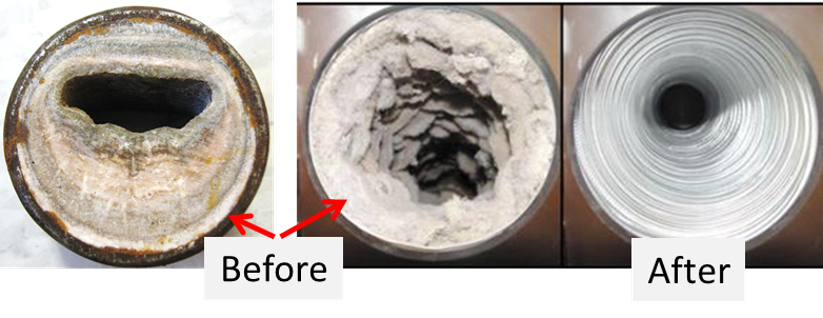Scaling and Cleaning of Equipment
Scaling and Cleaning of Equipment
Scale is caused by sediment suspended in fluid precipitating out and coating the surface of metal or rock. In the context of drilling, water usually carries minerals in solution as it flows toward the bottom of the well. Scale can actually be a problem in the rock leading up to the wellbore, and not just in the well and other equipment. Scale can actually plug the formation and the perforations in the well.
It can also clog tubing and flow lines and prevent tubing and other equipment from moving up and down the well. It can also collect and form a solid at the bottom of stock tanks. It also can act as a catalyst for electrochemical corrosion, increasing the damage it causes.
Scale can be stopped or at least slowed in the formation. Chemicals can be pumped down into the well to prevent the accumulation of scale. Adjusting the acidity of the well can also help to reduce scale buildup. Fracking methods can also help to open the porosity of the formation.
The scaling phenomenon may cause technical problems such as obstruction of equipment and pipes that will cause great damages and economic losses, and scale is one of the most difficult issues to resolve. Preventing scale formation relies on understanding the composing of the scale, appropriate scale inhibitor and early pre-treatment.
Scale prevention is important to ensure continuous production from existing reserves that produce brine. Wells could be abandoned prematurely due to poor management of scale and corrosion. The objective of this paper is to present an overview of scale prediction and control.

The course will cover:
- Basic Understanding of Scale Formation
- Types of Scales in the Formation and in the pipelines and utilities; Iron sulphides; carbonates; sulphates
- Types of Scales in Gas Plants and Refiners; mainly iron sulphides at high temperatures
- Types of Scales in Steam Generators ; silicates; carbonates and sulphates
- Prevention of Scale Formation
- Cleaning of Different Scale Types
- Scale Formation and mothballing of Equipment and Pipelines
More information can be viewed in the services section of this website
Class Information
Session Schedule
Virtual Zoom Class
URL will be emailed once payment has been received
Start time: 9:00AM CST (5 hours per day)
— In Person Training —
